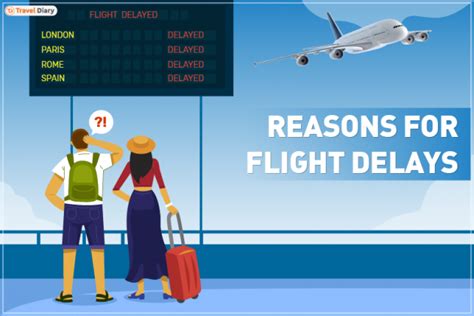
A passenger’s explosive reaction to an alleged luggage weight limit at Hartsfield-Jackson Atlanta International Airport triggered a significant delay and a viral video sensation, highlighting the escalating tensions between travelers and airlines over baggage policies.
A Delta Air Lines flight experienced a considerable delay after a female passenger engaged in a heated altercation with airline staff over the weight of her carry-on luggage. The incident, captured on video by fellow travelers and subsequently shared across social media platforms, depicts the woman unleashing a torrent of expletives and throwing items from her bag onto the airport floor in a desperate attempt to reduce its weight. The video quickly went viral, amassing millions of views and sparking widespread debate about airline baggage policies, passenger conduct, and the overall stress of air travel.
The incident reportedly began when Delta gate agents informed the passenger that her carry-on bag exceeded the airline’s weight limit. Delta Air Lines’ policy generally restricts carry-on bags to a maximum weight of 35 pounds (15.8 kg), although enforcement can vary depending on the gate agent and the fullness of the flight. According to eyewitness accounts and video footage, the woman became increasingly agitated as she argued with the airline staff, insisting that her bag met the requirements. As the argument escalated, she began removing items from her bag and throwing them onto the floor, creating a chaotic scene near the boarding gate.
The viral video shows the woman shouting profanities at the Delta employees and other passengers while scattering her belongings across the floor. She can be heard repeatedly claiming that the airline was unfairly targeting her and that the weight limit was discriminatory. The video captures the frustration and anger felt by many travelers who perceive airline baggage policies as arbitrary and punitive.
Delta Air Lines has not released an official statement regarding the specific details of the incident but emphasized its commitment to ensuring the safety and security of its passengers and employees. In a general statement, the airline reiterated its baggage policies and procedures, advising passengers to review the guidelines before arriving at the airport to avoid potential issues.
The incident has reignited the debate over airline baggage policies, particularly regarding carry-on weight and size restrictions. Many travelers argue that these policies are often unclear and inconsistently enforced, leading to confusion and frustration. Others contend that airlines are primarily motivated by profit, using baggage fees as a way to generate additional revenue.
The viral video has also raised questions about passenger behavior and the increasing frequency of disruptive incidents on flights and in airports. Experts attribute the rise in air rage incidents to a combination of factors, including increased stress levels, reduced personal space, and the heightened tensions surrounding travel in the post-pandemic era.
The Hartsfield-Jackson Atlanta International Airport, one of the busiest airports in the world, is no stranger to travel-related disruptions. However, the widespread attention garnered by this particular incident underscores the growing challenges facing both airlines and passengers as they navigate the complexities of modern air travel. The incident serves as a stark reminder of the need for clear communication, consistent enforcement of policies, and a greater understanding of the pressures experienced by travelers in today’s aviation environment.
Further Details and Context
The incident at Hartsfield-Jackson Atlanta International Airport involving a Delta Air Lines passenger and her carry-on luggage has brought to the forefront several interconnected issues that affect the airline industry and travelers alike. The viral video captured the intense frustration and anger of a passenger who felt unfairly targeted by the airline’s baggage policies. To fully understand the significance of this event, it is essential to delve deeper into the various aspects surrounding it, including airline baggage policies, passenger behavior, the psychology of air travel, and the broader context of the airline industry.
Airline Baggage Policies: A Source of Contention
Airline baggage policies have become a significant source of contention between airlines and passengers. In the quest to maximize revenue and streamline operations, airlines have implemented a variety of baggage fees and restrictions that often leave travelers feeling nickel-and-dimed.
-
Carry-on Restrictions: Most airlines impose restrictions on the size and weight of carry-on bags. While the specific limits vary from airline to airline, the general standard is around 22 x 14 x 9 inches for size and 35 pounds (15.8 kg) for weight. However, the enforcement of these rules can be inconsistent. Gate agents may overlook slightly oversized or overweight bags on some flights while strictly enforcing the rules on others, leading to passenger frustration.
-
Checked Baggage Fees: The introduction of checked baggage fees has fundamentally changed the way people travel. In the past, checked baggage was typically included in the price of a ticket. Today, most airlines charge fees for checked bags, especially on domestic and short-haul international flights. These fees can range from $30 to $50 per bag each way, adding a significant cost to the overall travel expense.
-
Dynamic Pricing: Some airlines employ dynamic pricing for baggage fees, meaning that the cost can vary depending on the route, time of year, and demand. This lack of transparency can make it difficult for passengers to budget for their travel expenses and can lead to unpleasant surprises at the airport.
-
Elite Status and Baggage Allowances: Airlines often offer elite status to frequent flyers, which includes benefits such as free checked baggage and priority boarding. While these perks can be valuable, they also create a sense of disparity between passengers, with some enjoying preferential treatment while others face strict enforcement of the rules.
Passenger Behavior and Air Rage
The incident at Hartsfield-Jackson Atlanta International Airport is just one example of a growing trend of disruptive passenger behavior on flights and in airports. Air rage incidents, which can range from verbal altercations to physical assaults, have become increasingly common in recent years.
-
Factors Contributing to Air Rage: Several factors contribute to air rage, including:
-
Stress and Anxiety: Air travel can be inherently stressful, with long lines, crowded terminals, and the fear of missing a flight. The added stress of baggage restrictions and fees can push passengers over the edge.
-
Reduced Personal Space: Airline cabins have become increasingly cramped, with less legroom and narrower seats. This lack of personal space can contribute to feelings of frustration and irritability.
-
Alcohol Consumption: Alcohol consumption can impair judgment and increase aggression. While airlines typically serve alcohol on flights, some passengers may overindulge, leading to disruptive behavior.
-
Frustration with Airline Policies: As seen in the Atlanta incident, frustration with airline baggage policies and fees can be a major trigger for air rage. Passengers who feel unfairly treated or taken advantage of may lash out at airline staff.
-
Post-Pandemic Travel Surge: The surge in travel demand following the COVID-19 pandemic has put additional strain on airlines and airports. Staff shortages, flight delays, and cancellations have become more common, leading to increased passenger frustration.
-
-
Consequences of Disruptive Behavior: Disruptive behavior on flights and in airports can have serious consequences. Passengers who engage in air rage may face fines, arrest, and even being banned from flying with the airline in the future. In extreme cases, disruptive behavior can pose a safety risk to the flight and its passengers.
The Psychology of Air Travel
Understanding the psychology of air travel can shed light on why passengers may react strongly to seemingly minor inconveniences, such as baggage restrictions.
-
Loss of Control: Air travel involves a significant loss of control for passengers. They are at the mercy of the airline’s schedule, policies, and procedures. This lack of control can be unsettling for some people, leading to anxiety and frustration.
-
Dehumanization: The impersonal nature of air travel can contribute to feelings of dehumanization. Passengers may feel like they are being treated as mere numbers rather than as individuals. This can lead to a sense of resentment and a willingness to challenge authority.
-
Cognitive Dissonance: Cognitive dissonance occurs when people hold conflicting beliefs or attitudes. In the context of air travel, passengers may believe that they are entitled to certain rights and privileges, but they also recognize that airlines have the right to set their own policies. This conflict can lead to feelings of unease and a desire to resolve the dissonance by challenging the airline’s policies.
-
Social Contagion: Disruptive behavior can be contagious. When one passenger becomes agitated or aggressive, it can embolden others to do the same. This phenomenon, known as social contagion, can escalate quickly and lead to a chaotic situation.
The Broader Context of the Airline Industry
The incident at Hartsfield-Jackson Atlanta International Airport must be viewed within the broader context of the airline industry. The industry has undergone significant changes in recent decades, driven by deregulation, competition, and economic pressures.
-
Deregulation: The deregulation of the airline industry in the late 1970s led to increased competition and lower fares. However, it also allowed airlines to unbundle services and charge fees for things that were previously included in the price of a ticket.
-
Competition: The airline industry is highly competitive, with airlines constantly vying for market share. This competition has led to cost-cutting measures, such as reducing legroom and charging for checked baggage.
-
Economic Pressures: Airlines face significant economic pressures, including high fuel costs, labor costs, and regulatory compliance costs. These pressures have forced airlines to find new ways to generate revenue, such as through baggage fees and ancillary services.
-
Customer Service Challenges: The combination of cost-cutting measures and increased passenger volume has led to customer service challenges for airlines. Passengers often complain about long wait times, lost baggage, and unresponsive customer service representatives.
Conclusion
The incident involving the Delta Air Lines passenger and her carry-on luggage at Hartsfield-Jackson Atlanta International Airport is a microcosm of the broader challenges facing the airline industry and travelers. Airline baggage policies, passenger behavior, the psychology of air travel, and the economic pressures of the industry all contribute to the tensions that can erupt in airports and on flights.
Addressing these challenges requires a multifaceted approach, including:
-
Clear and Transparent Baggage Policies: Airlines should strive to create clear and transparent baggage policies that are easy for passengers to understand. They should also ensure that their policies are consistently enforced.
-
Improved Customer Service: Airlines should invest in improving customer service, both online and in person. They should train their employees to handle passenger complaints and resolve issues effectively.
-
Addressing the Root Causes of Air Rage: Airlines should work to address the root causes of air rage, such as stress, anxiety, and frustration. They can do this by providing more comfortable seating, offering complimentary amenities, and reducing wait times.
-
Promoting Responsible Passenger Behavior: Airlines should promote responsible passenger behavior by educating passengers about the consequences of disruptive behavior and by enforcing their policies consistently.
By taking these steps, airlines can create a more positive and less stressful travel experience for passengers, reducing the likelihood of incidents like the one at Hartsfield-Jackson Atlanta International Airport. Ultimately, a collaborative effort between airlines, passengers, and airport authorities is needed to create a more harmonious and efficient air travel ecosystem.
Frequently Asked Questions (FAQ)
1. What exactly happened at the Atlanta airport with the Delta passenger?
A female passenger traveling on Delta Air Lines at Hartsfield-Jackson Atlanta International Airport engaged in a heated dispute with airline staff over the weight of her carry-on luggage. The argument escalated when the passenger began throwing items from her bag onto the floor in an attempt to reduce its weight, causing a significant disruption and delay to the flight. The incident was captured on video and went viral on social media.
2. What are Delta Air Lines’ policies regarding carry-on baggage weight?
Delta Air Lines generally restricts carry-on bags to a maximum weight of 35 pounds (15.8 kg). However, enforcement of this policy can vary depending on the gate agent and the fullness of the flight. It is recommended that passengers check Delta’s website or contact customer service for the most up-to-date information.
3. Why are airline baggage policies so strict, and why do they seem to vary?
Airlines impose baggage restrictions for several reasons, including safety concerns, weight and balance considerations, and operational efficiency. Strict policies help ensure that aircraft can operate safely and efficiently. Variations in enforcement can occur due to factors such as staffing levels, the size and type of aircraft, and the overall workload of the gate agents. Some argue airlines leverage these policies to generate ancillary revenue through baggage fees.
4. What can passengers do to avoid issues with carry-on baggage at the airport?
To avoid issues with carry-on baggage, passengers should:
- Check the airline’s specific baggage policies regarding size and weight limits before arriving at the airport.
- Weigh and measure their bags at home to ensure they comply with the restrictions.
- Pack essential items in a personal item that fits under the seat.
- Be prepared to remove items from their bag if it exceeds the weight limit.
- Consider shipping items ahead of time if necessary.
- Remain calm and respectful when interacting with airline staff, even if there is a disagreement.
5. What are the potential consequences for passengers who engage in disruptive behavior at the airport or on a flight?
Passengers who engage in disruptive behavior at the airport or on a flight can face a range of consequences, including:
- Being denied boarding.
- Being removed from the flight.
- Receiving a fine.
- Being arrested and charged with a crime.
- Being banned from flying with the airline in the future.
- Being added to a no-fly list. The specific consequences will depend on the severity of the behavior and the applicable laws and regulations.









